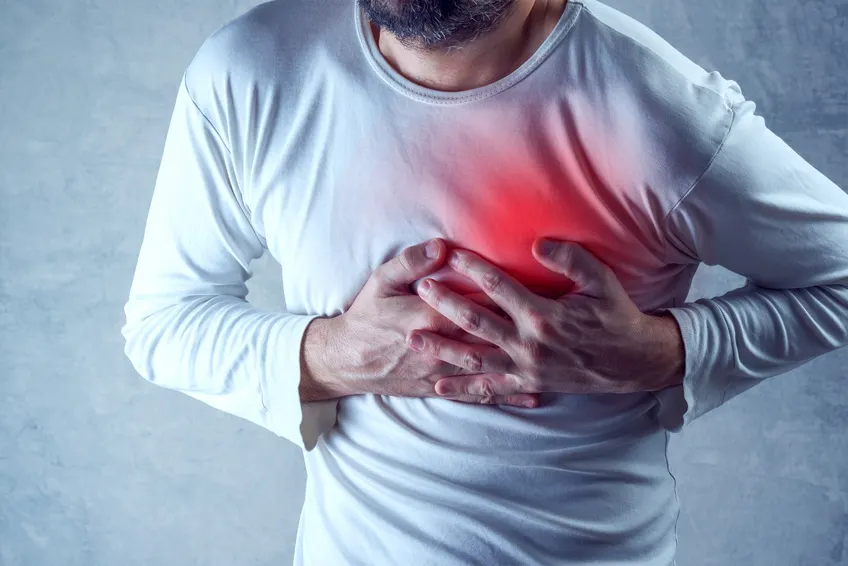Heart health is often a concern for adults of all ages — and there are plenty of things you can do to keep your heart in good working condition. Eating the right foods, exercising regularly, and managing your stress can all be great for your heart. But one factor many people fail to think about is sleep. Yes, it’s true that sleep can impact the condition of your heart… but how?

Sleep Issues and Heart Health
When you’re asleep, your body goes to work at making repairs and making sure everything is working properly. But if you suffer from a sleep issue, like obstructive sleep apnea (OSA), your body may undergo more stress during sleep. OSA causes people to stop breathing and when this happens, the brain releases stress hormones.
These hormones are helpful in aiding with breathing, but they can increase blood pressure and heart rate. Both of these things can put a strain on the heart and increase the risk of heart failure.
And it’s not just OSA that affects heart health and causes problems. If someone has trouble falling or staying asleep, they’re more likely to have heart problems, too. Insomnia results in the body starting a stress response.
Any level of stress is bad for the heart, but stress from insomnia can significantly weaken the heart over a long period of time.
So, this isn’t good news for the 10 to 18% of U.S. adults who suffer from chronic sleep issues.
Heart Health and Sleep
It’s important to note that it’s not just sleeping problems that can affect heart health and cause problems — it goes both ways. If someone experiences heart issues, they are likely to experience trouble sleeping. Chest pain can lead to difficulty relaxing and in some cases, laying down can even be painful or cause difficulty breathing.
So, while there are tools now to help diagnose and treat heart problems, like cardiac catheterization, it is more important than ever to make sure you’re getting plenty of sleep, for both your sanity and your heart health.
Tips for Getting Sleep
If you have trouble sleeping, you may want to try these tips to help improve your sleep and your heart health.

First of all, put away the screens in the evening. Blue light emitted from televisions, computers, and cellphones can increase brain activity, which can make it hard to fall asleep. So, consider limiting the amount of time you spend on your phone or watching television before bed.
For example, if you have to participate in one of the 11 million meetings that occur each day, make sure they’re scheduled for the afternoon so you can be tech-free in the evenings. Additionally, avoid drinking caffeine and alcohol in the afternoon and evening, as both of these can keep you wide awake.
And to the best of your ability, you should try to go to sleep and wake up at the same time every day. Being consistent with the times you go to bed and wake up can help regulate your sleep and improve sleep quality over time.
Final Thoughts
So now that you know the importance of a good night’s sleep for your heart, keep these tips in mind and do whatever you can to make sure you’re sleeping soundly at night. Sleep is important! Machines may be able to process more than 50,000 tasks per hour, but we need our sleep. Make sure your brain and your heart are staying healthy.
